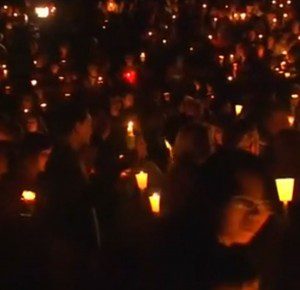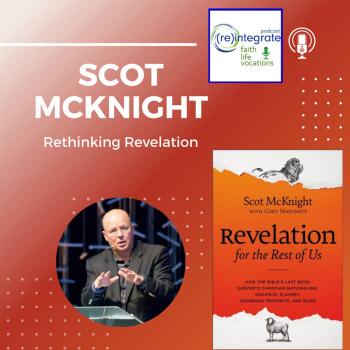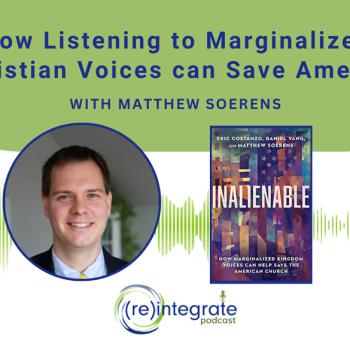 The killings at the Oregon college made me very angry.
The killings at the Oregon college made me very angry.
When I read about this mass-murder, I was seething in my fury. The killer had young men and women stand who said they were Christians, said to them, “Good, because you’re a Christian, you’re going to see God in just about one second” and killed them, I thought to myself, This is war!
This is where we are going in this culture. With a more and more stark divide between Christians and the rest of culture (especially on hot-button issues like homosexuality and abortion), we are going to start to see a whole lot more violence.
My immediate reaction was, Of course there will be crazies like this guy who will seek to kill Christians. We better brace for a lot more persecution to come. But then I prayed. And I began to come to grips with myself and what a proper response might be.
Radicals On Both Sides
As the religion and culture clashes get more and more heated, radicals on both sides are going to do more and more violence. It’s the way of the world. It’s the way of the sinful nature of human beings. Instead of love, we lash out in hate. In our broken, rebellious nature, we want to hate our enemies rather than love them.
Those who hate those who perform abortions have killed people who do them. The heated rhetoric over gay marriage could make it look like Christians would rather see homosexuals die rather than let them marry each other.
But that should not be. When Christians use the rhetoric of war in our debates about culture, there will be casualties.
War Casualties
John Woodbridge, a former prof of mine way back when I was in seminary, wrote a fine piece for Christianity Today a few years back that has been republished on their website this month (good timing!). He identifies four dangers of using war rhetoric:
“First, culture-war rhetoric can be self-fulfilling prophecy, exacerbating the very conflicts it seeks merely to describe. Repeated recourse to the language of war makes it harder to love our enemies—and it is already hard to do so—because it inflames angry feelings.
Second, culture-war rhetoric leads us to distort others’ positions, to see enmity in place of mere disagreement. It leaves no room for nuanced positions, or for middle ground.
Third, culture-war rhetoric distorts our own position, too—making our message seem mainly to be angry criticism when it ought to be mainly the reconciling gospel of Jesus Christ.
Fourth, culture-war rhetoric plays into the hands of extremists on the Left, who would like to convince Americans that “the Religious Right” seeks to impose a theocratic state on them.”
What Am I Going to Do?
I do not mean to make it sound like I blame Christians’ use of war rhetoric for the killings of this twisted man in Oregon. But, at least for me, I want to be sure that I don’t throw gasoline on a fire of inflamed emotions. I wanted to hate this man and to hate all those who oppose Christian values in our country. I wanted to lash out in retaliation against those who would do such a thing. I wanted to go to war.
And then I heard Jesus tell me, “Love your enemies and pray for those who persecute you.”
And I realized that the only proper response to violence in not more violence, but love. I realized that I’m not at war with these people. This is a spiritual battle, and Jesus has told me to put away my sword. He has told me to follow his way of the cross – a willingness to lay down my life.
Lay down my life.
The image of those young people being shot because of their willingness to confess belief in Jesus comes rushing in. And I am disgusted.
Lay down my life.
What does that mean for me? Not just when somebody has a gun to my head. Am I willing to follow in the path of the suffering Jesus who loved even those who were crucifying him?
Lay down my life.
Right after Jesus told his disciples that “There is no greater love than to lay down one’s life for one’s friends” (John 15:13), he explained to them the bitter truth: “If the world hates you, remember that it hated me first. The world would love you as one of its own if you belonged to it, but you are no longer part of the world. I chose you to come out of the world, so it hates you” (vv. 18-19).
And then in his prayer, Jesus says to the Father, “I have given them your word and the world has hated them, for they are not of the world any more than I am of the world…As you sent me into the world, I have sent them into the world” (John 17:14-18).
John is the same gospel that gave us that famous passage, “For God so loved the world that he gave his one and only Son, that whoever believes in him shall not perish but have eternal life. For God did not send his Son into the world to condemn the world, but to save the world through him” (John 3:16-17).
Lay down my life. Like Jesus.
Image captured from news footage of vigil at Umpqua Community College













